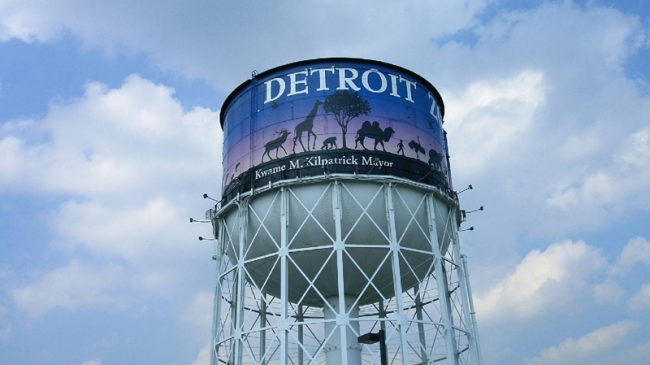This month, Detroit Emergency Manager Kevyn Orr issued a request for information on a potential public-private partnership for the operation and maintenance of the city’s water and wastewater system. The request comes as city’s original plans to lease the water and wastewater system to a regional public authority have stalled amid resistance from surrounding suburban governments, who have balked at the structure of the plan, which would require them making $47 million in annual lease payments to the city over a 40-year period, totaling over $1.8 billion.
While the request for information envisions an operations and maintenance (O&M) contract-with a cap on any rate increases of 4% annually for the first 10 years of a contract-it also notes that Orr will consider “alternative transaction structures, such as a long-term lease and concession agreement or sale.” Qualifications and non-binding expressions of interest are due in early April, and for those bidders deemed qualified, final and binding proposals would be due in June 2014.
Overall, this solicitation is a sensible move. Given Detroit’s bleak financial situation and the massive debt held by the water/wastewater system (nearly $6 billion in revenue bond debt), it makes sense to test the market to see what the full range of potential solutions really is. At a bare minimum, it will give officials a sense of how to proceed with regard to negotiations with neighboring jurisdictions on the regional authority concept. If the private sector can offer a better solution, then there are now more options on the table. If the private sector cannot offer a better solution, then the city will likely need to reevaluate its position on the regional authority lease concept.
That said, the system’s massive debt load and capital investment needs could potentially make it a difficult sell for private investors, at least as far as a long-term lease goes. While some jurisdictions have done long-term leases of water and wastewater systems to private operators-Bayonne, New Jersey being among the latest-this could be a major challenge in Detroit’s situation, as the nearly $6 billion in debt would likely have to be paid off immediately. In addition, there are hundreds of millions in capital investment needs that a private operator would need to take on, as well as approximately $675 million in retiree pension obligations. Adding that up, it’s not clear that the system has enough value locked within it to make a long-term lease attractive for a private investor/operator.
That doesn’t mean there’s not a viable role for some type of privatization moving forward. It certainly makes sense to at least look at contracting out operations and maintenance to lower operating costs and free up revenues for other uses, like paying down debt, capital investment and the like. You often see cost savings on the order of 10-30% in contracts like these.
Further, government clients tend to be very satisfied with their private water/wastewater contracts. According to data compiled by Public Works Financing, 93% of the 4,772 U.S. water/wastewater public-private partnership contracts up for renewal between 2000 and 2012 were actually renewed, and only 3% saw systems revert back to municipal operation.
Orr has put this on an aggressive timeframe, trying to wrap up any potential contract or lease by the end of the summer. That will certainly appeal to some investors and operators who would understandably want certainty that a process that starts under Orr will not continue past his tenure as emergency manager, in order to minimize political risk. Still, similar transactions typically often take anywhere from 6 months to well over a year to complete, so the city will need to be especially careful not to let its desire for haste compromise its due diligence.
It will be interesting to see how the private sector responds to the current request for information. It’s a sensible step for Orr to fully test the market to ensure that the water/wastewater system’s value is maximized in the bankruptcy resolution process, given that it is one of the largest assets in play.
The full request for information is available on the Detroit News website here. And for more on potential privatization initiatives proposed by Orr as part of Detroit’s bankruptcy plan of adjustment, see here.
Leonard Gilroy is director of government reform at Reason Foundation and is the editor of the Privatization & Government Reform Newsletter, available here. This article was featured in the March 2014 edition of the newsletter.

